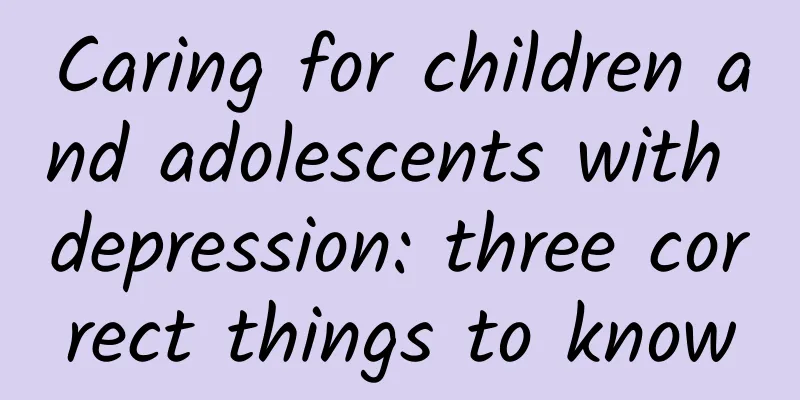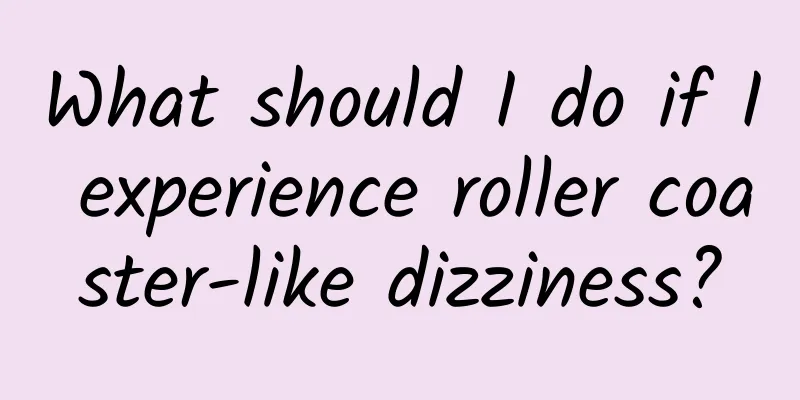Caring for children and adolescents with depression: three correct things to know

|
Award-winning works (article category) of the Health Management Committee's "Popularize health knowledge, advocate healthy life" popular science collection Author: Peng Haiying, Xiong Chi, Xie Hongzhen Unit: Department of Health Medicine, Southern Theater Command General Hospital Did you know that the data on adolescent mental health in the "China National Mental Health Development Report (2019-2020)" shows that the detection rate of depression in primary school is 10%, the detection rate in junior high school is 30%, and the detection rate in high school is 40% [1]. These "little teenagers" who should have grown up happily, have lost their smiles since when, become unwilling to communicate with others, often lose their temper, become depressed, and even exhibit extreme behaviors... The mental health of adolescents is not only related to their own health and growth, but also to the happiness of countless families, as well as the safety and stability of society. Fortunately, this social phenomenon has attracted more and more attention and attention from schools, families, and society. Let us learn together what are the three correct ways to care for children and adolescents with depression! 1. Correctly view depression: Depression is a disease, not a condition, and requires treatment. When many parents hear that their children are depressed, they are puzzled, thinking that conditions are much better now than before, so why are they depressed? Is it because the doctor made a wrong diagnosis, or is it because the children spend too much time on their phones, or are they too fragile? We must realize that depression is not a pretentiousness, but a disease. The concentration of neurotransmitters in the brain of a depressed person is insufficient or the information transmission is not smooth, which induces emotional cold. Just like a person's body can get sick, a person's emotions can also get sick. Therefore, instead of labeling depression as a pretentiousness, treat it with the perspective of facing the disease and actively treat it, so that you can get out of the haze of your heart as soon as possible. 2. Accept drug treatment correctly: Do not reject or resist drug treatment for fear of adverse reactions. Psychotherapy and drug therapy are conventional treatments for depression in children and adolescents. Many domestic and international clinical guidelines recommend that psychotherapy be the first choice for mild and moderate depression in this age group. As parents, teachers or friends who care for adolescents with depression, we can help them by listening, comforting, explaining, guiding and encouraging them, accompany them, and make them feel seen, heard and understood. However, for children and adolescents with moderate to severe depression, or persistent mild depression, antidepressant drugs should be added to comprehensive treatment after evaluation by a professional doctor. When faced with doctors' recommendations for drug treatment, many families refuse to take medication due to concerns about adverse drug reactions, thus delaying treatment and worsening the condition. Although antidepressants can cause adverse reactions, timely and standardized treatment can control symptoms, improve clinical cure rates, and minimize disability and suicide rates. Therefore, it is necessary for every adolescent depressed patient and family to correctly view adverse drug reactions, weigh the pros and cons, and not blindly reject drug treatment. 3. Take medication correctly as directed by your doctor: do not stop or reduce the dosage on your own to improve the effectiveness of drug treatment. After taking antidepressants for ten days or half a month, some adolescent patients seem to have no effect; some have more serious adverse reactions, such as nausea, vomiting, insomnia, and even mania. When encountering the above situation, some adolescent patients or parents will think that such drugs have serious adverse reactions, and they are afraid of harming their children's bodies, so they stop taking the drugs without communicating with the doctor; some even doubt the doctor's treatment plan or diagnosis and treatment level, and no longer follow up at the agreed time. In fact, it is incorrect to stop taking the drug on your own or reduce the dosage. Common adverse reactions of antidepressants include nausea, vomiting, diarrhea, constipation, headache, dizziness, anxiety, insomnia, mania, etc. Generally, after taking them for a period of time, the adverse reactions will gradually decrease. Therefore, when the above adverse reactions occur, you should tell your doctor in time. Adverse reactions can be reduced by changing the medicine or adjusting the dosage. There are a few things to note when taking the above medicines: 1. Use sufficient amount and for a full course of treatment. Most antidepressants take effect slowly and require several weeks or even longer to achieve the best therapeutic effect. Therefore, you should persist in taking the medication and strictly follow the doctor's instructions. 2. Do not reduce or stop taking medication suddenly. After taking the medicine for a period of time, some teenagers feel that their symptoms have been alleviated, so they reduce the dosage or stop taking the medicine on their own, which results in the recurrence or even aggravation of the disease. The reason is that sudden discontinuation of the medicine may cause withdrawal syndrome, which is mainly manifested as unstable posture, dizziness or lightheadedness; changes in perception (such as crying easily due to depression); abdominal symptoms, etc. The symptoms of withdrawal syndrome may be misdiagnosed as a relapse of the disease. Therefore, you should stop taking the medicine under the guidance of a doctor and never reduce or stop taking the medicine on your own. 3. Be aware that taking such drugs may cause the risk of suicide! Guardians should keep the drugs properly. 4. During medication, liver and kidney function, blood sugar, prolactin level, body weight, electrocardiogram, etc. should be monitored regularly, as well as the growth and development of children. Let us protect the mental health of young people and safeguard our future together. Perhaps our comforting words and open arms will warm them up when they are at their lowest point, and make them believe that life is worth living no matter how desperate they are. References [1] Fu Xiaolan, Zhang Kan, Chen Xuefeng. China National Mental Health Development Report (2019-2020)[M]. Beijing: Social Sciences Academic Press, 2021. |
>>: Why do children's breasts suddenly become bigger when they wear thin clothes in summer?
Recommend
White stuff on nipples
A woman's breast is a very important part, it...
How long does it take to get menstruation after weaning?
After weaning, women usually need 3 to 6 months t...
Will I get pregnant unexpectedly if I have an IUD?
There are many methods of contraception. If you d...
What to eat when you have stomach discomfort during pregnancy
In the early stages of pregnancy, women's sto...
Is it normal to be sleepy during 7 months of pregnancy?
It is normal to experience drowsiness during the ...
Black blood clots after abortion
Medical abortion is not unfamiliar to many women....
Effects of gentamicin on pregnant women
Are there any side effects from using penicillin ...
Why do we need to provide reading guidance for children's literature? What kind of children's literature is suitable for fourth graders?
The cultivation of reading ability is an importan...
Symptoms of Trichomonas vaginitis, a common gynecological disease
Among the types of vaginitis, Trichomonas vaginit...
How long does it usually take for menstruation to occur after an abortion?
Abortion is an experience that many women have no...
Things to note after taking the ring:
There are many things to pay attention to before ...
What are the benefits of eating kelp for women
Kelp is a kind of algae that grows in the deep se...
How can I relieve my back pain during my period?
It is normal for girls to have their periods, som...
This cancer has almost no symptoms in its early stages.
Strictly speaking, digestive tract tumors may not...
A woman's eyebrows have vertical lines
Nowadays, every girl loves beauty very much and d...









